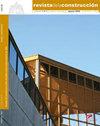Assessment of shear wave velocity concept on the site specific analysis and its effects over performances of building codes
IF 1.4
4区 工程技术
引用次数: 1
Abstract
Earthquakes’ effects on the ground especially to superstructures vary depending on the local site conditions. As the seismic waves move towards the surface, the dynamic behavior is affected by the depth of the bedrock, layer thickness, and the soil type. Site specific soil behavior analyses are carried out to estimate the seismic force spread from the bedrock to the ground along the soil layers and to determine the spectral properties of the site. During the transmission of the wavelength, the amplitude and frequency content change depending on the properties of the soil layers. Both the alteration of the dynamic properties of soil layers and the earthquake characteristics must be analyzed in order to predict the ground surface behavior. Turkey is one of the most important earthquake prone country in Europe and it is crucial to reduce any possible damage as a result of seismicity by taking the necessary measures. This study focuses on a region near North Anatolian Fault which is one of seismically active faults in Yalova region in Turkey. The goal is to understand the nonlinear site specific behavior along with the equivalent linear option using two boring data with similar shear wave velocity and site class. Eleven different earthquakes were chosen for the analysis. The fault type and the soil class are the main characteristics to determine those records. The spectral behaviors of the ground surface were obtained from different models and they were compared with three different building codes (the new Turkish Building Code (TBC 2018), the Eurocode8 (EC8) and the International Building Code (IBC)). Analysis show that 1) the performance of the building codes vary a lot to predict the surface behavior, 2) equivalent and nonlinear site response differ in terms of short and long period spectral behavior and 3) the determination of site classes from shear wave velocity solely may not be sufficient to understand the propagation of the wave and sandy or clayey behavior should also be considered in design purposes.评价横波速度概念对现场具体分析及其对建筑规范性能的影响
地震对地面的影响,尤其是对上层建筑的影响,因当地情况而异。当地震波向地表移动时,其动力特性受基岩深度、层厚和土壤类型的影响。场地特定的土壤行为分析是为了估计沿土层从基岩到地面的地震力,并确定场地的频谱特性。在波长的传输过程中,振幅和频率含量随土层的性质而变化。为了预测地表行为,必须对土层动力特性的变化和地震特征进行分析。土耳其是欧洲最重要的地震多发国家之一,采取必要措施减少地震活动造成的任何可能的损害至关重要。本研究以土耳其亚洛瓦地区地震活动断裂之一的北安那托利亚断裂附近为研究对象。目标是使用两个具有相似横波速度和场地类别的钻孔数据,了解非线性场地特定行为以及等效线性选项。我们选择了11次不同的地震进行分析。断层类型和土壤类型是确定这些记录的主要特征。从不同的模型中获得了地面的光谱行为,并将它们与三种不同的建筑规范(新土耳其建筑规范(TBC 2018),欧洲建筑规范(EC8)和国际建筑规范(IBC))进行了比较。分析表明,1)建筑规范的性能差异很大,无法预测地表行为;2)等效和非线性场地响应在短周期和长周期频谱行为方面存在差异;3)仅从横波速度确定场地类别可能不足以理解波浪的传播,在设计目的中还应考虑砂质或粘土的行为。
本文章由计算机程序翻译,如有差异,请以英文原文为准。
求助全文
约1分钟内获得全文
求助全文
来源期刊

Revista de la Construccion
工程技术-工程:土木
CiteScore
2.30
自引率
21.40%
发文量
0
期刊介绍:
The Journal of Construction is aimed at professionals, constructors, academics, researchers, companies, architects, engineers, and anyone who wishes to expand and update their knowledge about construction. We therefore invite all researchers, academics, and professionals to send their contributions for assessment and possible publication in this journal. The publications are free of publication charges.
OBJECTIVES
The objectives of the Journal of Construction are:
1. To disseminate new knowledge in all areas related to construction (Building, Civil Works, Materials, Business, Education, etc.).
2. To provide professionals in the area with material for discussion to refresh and update their knowledge.
3. To disseminate new applied technologies in construction nationally and internationally.
4. To provide national and foreign academics with an internationally endorsed medium in which to share their knowledge and debate the topics raised.
 求助内容:
求助内容: 应助结果提醒方式:
应助结果提醒方式:


